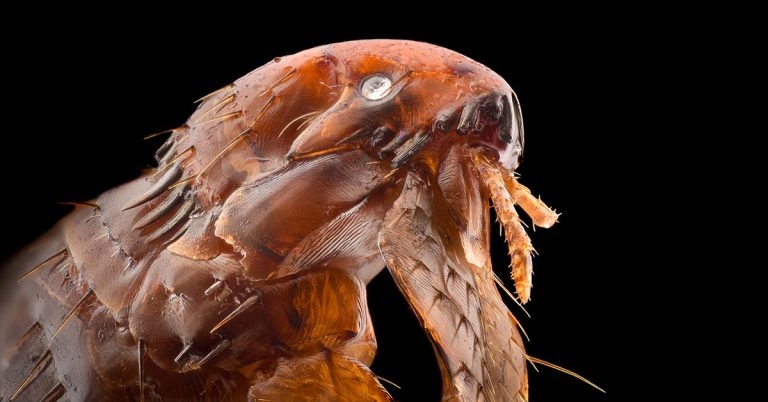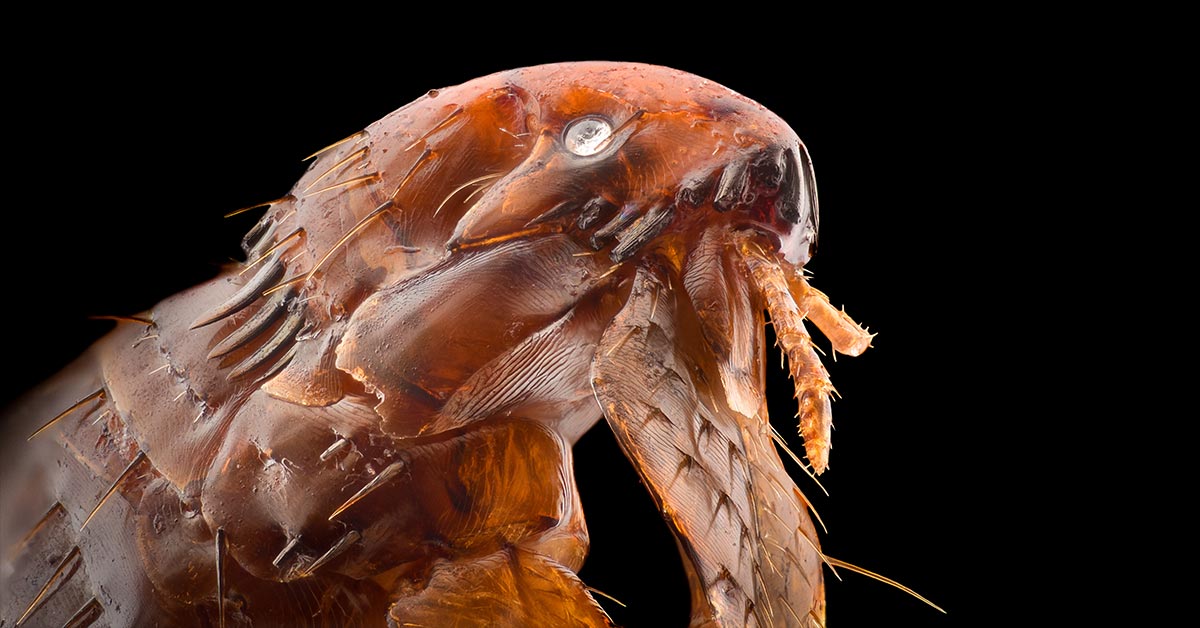16 Oct 2020
Protect Our Future Too initiative comes after a survey finds two-thirds of vets believe the number of fleas and ticks is increasing.

A flea at 20× magnification. Image © constantincornel / Adobe Stock

Vets on the front line of the fight against increasing flea infestations in UK pets are being urged to arm themselves with up-to-date information to halt the rise.
The plea comes as a poll carried out as part of a pharmaceutical firm’s latest campaign shows two-thirds of vets believe the number of fleas, as well as ticks, has increased in the past few years.
A separate research paper published this year shows fleas were discovered in 1 in 4 cats (28%) and 1 in 7 dogs (14%) attending UK vet practices. The same paper also reports low use of suitable flea treatments by pet owners.
The paper uses data collected in a national survey where “only 23.6% of the cats and 35% of the dogs inspected” had been treated with identifiable flea products that were still “in date” at point of inspection.
Further research shows 11% of fleas on cats and dogs were carrying Bartonella bacteria and 5% were carrying Rickettsia felis.
At an international round table event attended by 19 European specialists in parasitology, animal behaviour and zoonotic diseases held last month, seasonal changes – such as warmer autumns and winters – were described as having a wide range of effects on pets.
Off the back of the round table event, MSD Animal Health has launched Protect Our Future Too (POFT) across 30 countries to raise awareness of fleas and flea‑borne pathogen risks with owners.
Ian Wright, guideline director for the European Scientific Counsel Companion Animal Parasites, said he was concerned about the rise in flea infestations and the implications of it.
He said: “Vets on the front line are seeing these infestations day in, day out – and increasing humidity and milder weather conditions are only likely to fuel flea numbers over the coming years.”
Richard Wall, professor of zoology at the University of Bristol, was part of the round table event and supports the introduction of the POFT initiative.
He said: “Whereas once owners might have been less likely to treat their pets during the winter months, seasonal changes mean parasites may be more likely to become a year-round problem, so it’s really important owners seek the advice of a vet to make sure their pets – and they – are protected.”